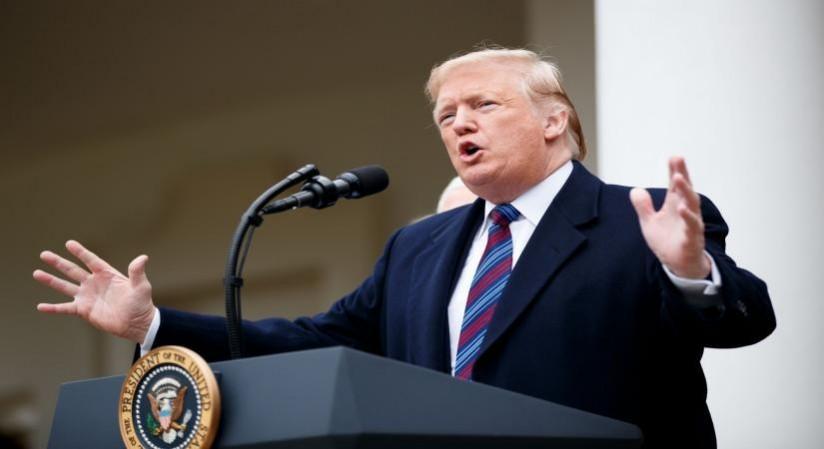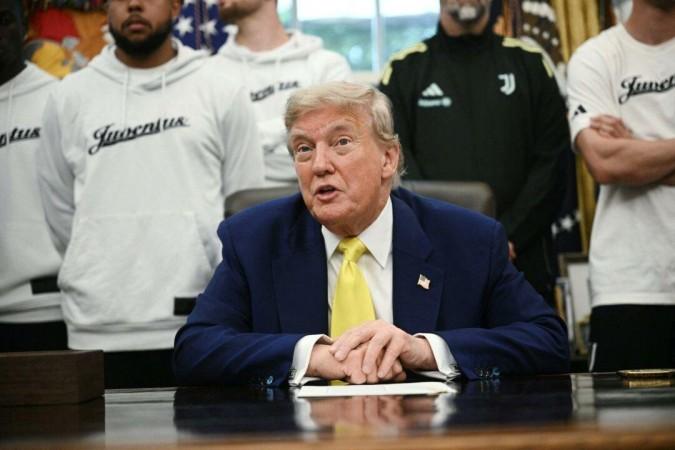
In a tense geopolitical climate, U.S. President Donald Trump is poised to make a pivotal decision regarding potential military action against Iran. This decision, expected within the next two weeks, comes as tensions between Iran and Israel escalate, threatening to alter the Middle East's political landscape. White House Press Secretary Karoline Leavitt announced that President Trump is carefully considering his options, with a decision anticipated soon.
"Based on the fact that there's a substantial chance of negotiation that may or may not take place with Iran in the near future, I will make my decision whether or not to go in the next two weeks," Leavitt read from a statement by Trump. The President's decision is contingent on the potential for diplomatic negotiations with Tehran, which continue despite the heightened conflict.

The U.S. has set clear conditions for any diplomatic agreement with Iran, emphasizing that Tehran must cease uranium enrichment and abandon its nuclear weapons ambitions. Correspondence between the U.S. and Iran is ongoing, with U.S. special envoy Steve Witkoff and Iranian Foreign Minister Abbas Araghchi engaging in multiple phone conversations.
These discussions aim to find a diplomatic resolution to the crisis, which intensified following Israel's strikes on Iran. A U.S. proposal suggests creating a regional consortium to enrich uranium outside of Iran, a plan Tehran has so far rejected. However, Araghchi indicated that Iran might show flexibility on the nuclear issue if the U.S. pressures Israel to halt its military actions. Tehran has made it clear that it will not return to negotiations unless Israel ceases its attacks.

Despite approving preliminary attack plans on Iran, President Trump has delayed a final decision, hoping Iran will abandon its nuclear program. He has been meeting daily with his national security team in the White House Situation Room to assess the situation.
The potential military action is part of a broader strategy to dismantle Iran's nuclear infrastructure, a key goal of Israel's ongoing strikes. The conflict has prompted international reactions, with countries like Australia suspending embassy operations in Iran due to the deteriorating security environment. Australian Foreign Minister Penny Wong announced the withdrawal of officials from Tehran, urging Australian citizens to leave Iran if possible.
In Israel, the conflict has led to significant military actions, including strikes on key Iranian sites. The International Atomic Energy Agency (IAEA) reported damage to key buildings at a nuclear plant in Iran, although the reactor was not operational at the time. Israel's strikes aim to dismantle Iran's nuclear capabilities, a move that has drawn both support and criticism from the international community.
The current situation echoes past conflicts in the region, where tensions between Iran and Israel have often escalated into broader confrontations. Historically, the Middle East has been a hotspot for geopolitical struggles, with the Iran-Iraq War in the 1980s and the Gulf War in the 1990s serving as reminders of the region's volatility. The ongoing conflict also draws parallels to the 2015 Iran nuclear deal negotiations, where diplomatic efforts were made to curb Iran's nuclear ambitions in exchange for lifting economic sanctions.
The involvement of global powers, particularly the U.S., in the Iran-Israel conflict highlights the complex web of alliances and interests at play. The U.S. has historically supported Israel, a key ally in the region, while also engaging in diplomatic efforts to prevent Iran from acquiring nuclear weapons.
The current situation underscores the delicate balance between military action and diplomacy, with President Trump navigating these challenges as he considers his next move. The decision to strike Iran carries significant implications for regional stability and global security. A military confrontation could lead to a broader conflict, drawing in other regional players and potentially disrupting global oil markets. Conversely, successful diplomatic negotiations could pave the way for a more stable Middle East, reducing the risk of nuclear proliferation.








